Religion: Theology
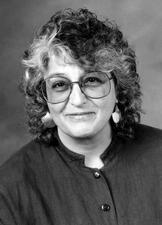
Rachel Adler
Rachel Adler is unquestionably among the leading constructive Jewish theologians, translators, and liturgists of the modern era. One of the first theologians and ethicists to integrate feminist perspectives and concerns into the interpretation of Jewish texts and the renewal of Jewish law and ethics, Adler is the award-winning author of Engendering Judaism.
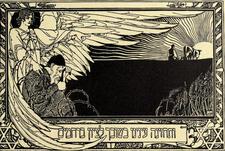
Daughter Zion (Bat Tzion)
“Daughter Zion” or “Fair Zion” (in Hebrew bat tzion) is the personification of Jerusalem in poetic and prophetic literature. Initially, the city is positively likened to a daughter, protected under God’s special regard, but later, under the Babylonian siege, she is devastated, even ravaged. However, when Jerusalem is rebuilt, the daughter is forsaken no longer, returning to God’s grace in the prophecies of consolation.
Annette Daum
A deeply religious feminist, Annette Daum dedicated her life to two causes: interfaith dialogue and feminism. Among other leadership positions, she coordinated interreligious affairs at the Union of American Hebrew congregations, edited the journal Interreligious Currents, and organized various task forces focused on gender equality and Jewish-Christian feminist dialogue.
Feminist Theology
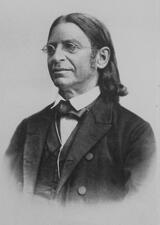
Abraham Geiger
Abraham Geiger (1810-1874) was one of the most influential Jewish thinkers of the nineteenth century. He was one of the major intellectual leaders and founders of the Reform movement in Germany and a strong supporter of Jews entering European society. As part of his vision of Judaism, he argued for a Judaism oriented around the home and domestic life, but also a Judaism that both elevated and sidelined the women that had long created that domestic life.
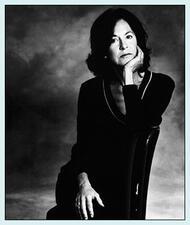
Louise Glück
Louise Glück, American poet, essayist, and educator, was the recipient of the 2020 Nobel Prize in Literature, as well as numerous other awards for her writing; she also served as poet laureate of the United States from 2003 to 2004. One finds the personal, the mythological, and the Biblical woven intricately throughout Glück’s oeuvre.
Iggeret Ha-Kodesh
The Iggeret ha-Kodesh is a Kabbalistic work with contested authorship, written in the second half of the twelfth century. The work is a kabbalistic interpretation of sexual relations and its sacred spirituality between a married couple.
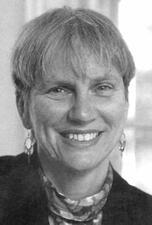
Judaic Studies in the United States
When the Association for Jewish Studies (AJS) was established in 1969 as the professional organization of scholars in the interdisciplinary field of Judaic studies, there were no women among its founders. Within the past few generations, however, a field that was traditionally dominated by men has gradually witnessed the emergence of many women scholars.
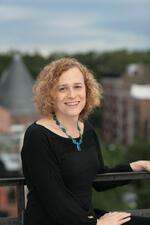
Joy Ladin
Joy Ladin is the Gottesman Professor of English at Stern College, a prolific poet, and a central figure in transgender theology. Her numerous written works reframe classical Jewish theological questions from a transfeminist perspective.
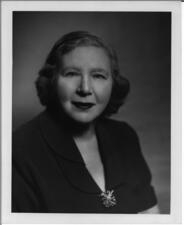
Tehilla Lichtenstein
Tehilla Lichtenstein co-founded the Society of Jewish Science with her husband as an alternative to Christian Science, creating a small but passionate following and carving a place for herself as a congregational leader.
Matriarchs: A Liturgical and Theological Category
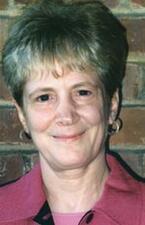
Judith Plaskow
Judith Plaskow is the first Jewish feminist to identify herself as a theologian. Deeply learned in classical and modern Christian theology yet profoundly committed to her own Judaism, Plaskow created a distinctively Jewish theology acutely conscious of its own structure and categories and in dialogue with the feminist theologies of other religions.
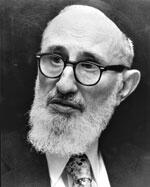
Soloveitchik, Rabbi Joseph Dov
Joseph Dov Soloveitchik shaped Jewish practice and public opinion through the era of second-wave feminism. Despite his sometimes progressive actions, Soloveitchik maintained that women and men had separate religious and familial roles. These positions from the leader of the Modern Orthodox community cemented resistance to Orthodox feminists’ demands to increase their participation in Jewish rituals.
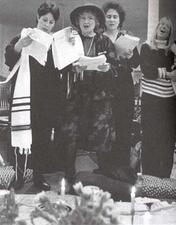
Spirituality in the United States
Jewish women’s spirituality developed historically within the confines of a patriarchal tradition. Over time, feminists have developed rituals and created spaces that honor the unique experiences of women.


